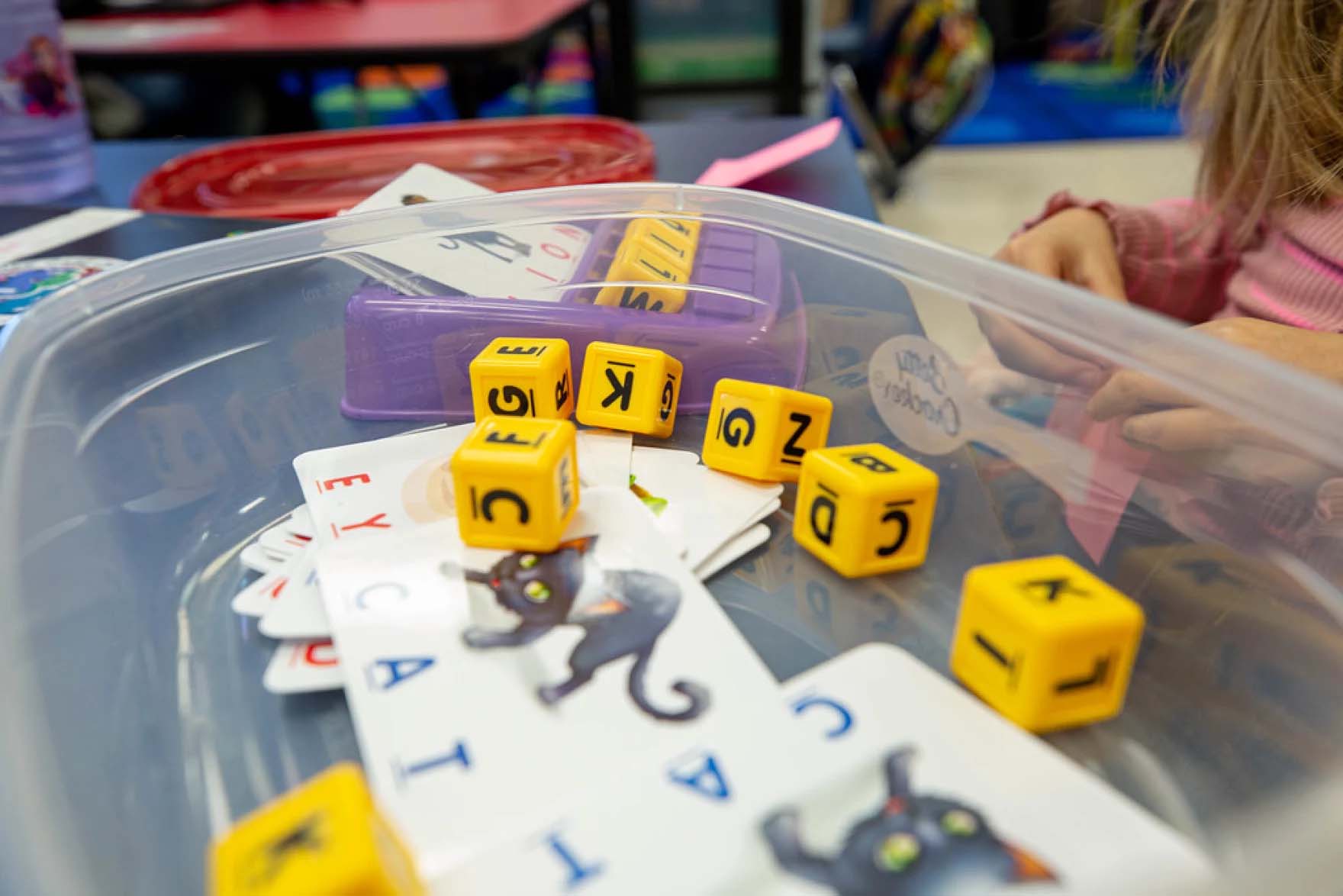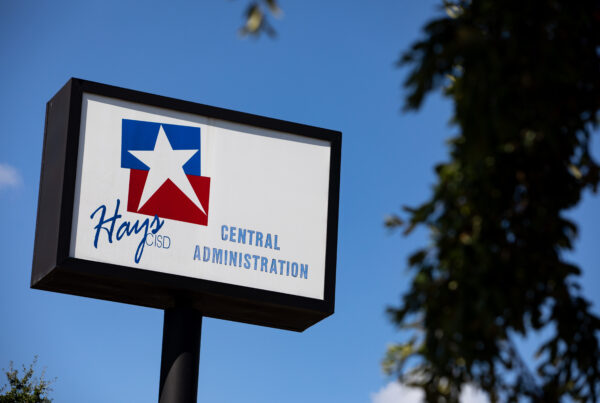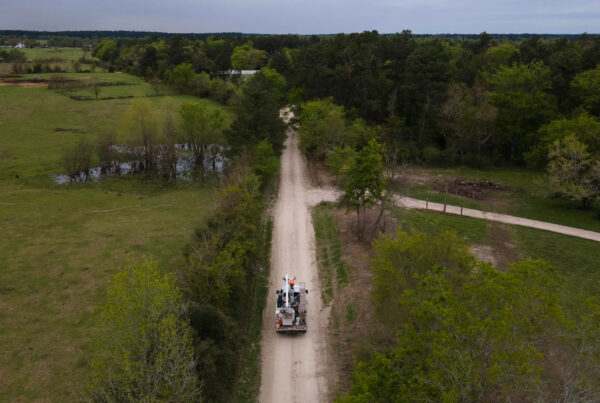From KUT:
State education officials want to appoint a management team to help Austin ISD address “systemic issues” when it comes to serving students with disabilities.
In a report released Friday, the Texas Education Agency said AISD has repeatedly failed to provide services required by state and federal law. One of the most glaring issues facing the district is its ongoing backlog of special education evaluations. TEA also investigated whether the district was implementing students’ individual education programs (IEPs) and found failures there, too.
“AISD delayed, and in some cases completely failed to timely evaluate and/or provide, special education and related services to students even after students had been identified as being eligible for special education,” TEA Director of Special Investigations Adam Benthall wrote in the report.
Evaluations help determine if a student has a disability, and if so, which special education services they are entitled to. Typically, evaluations must be completed within 45 school days. If the district finds a student is eligible for services, it must then develop an IEP — a binding document that outlines which services the student must receive.
According to the TEA report, 13.3% (10,032) of AISD students require or receive special education services. As of March 20, 1,808 evaluations are overdue. That figure includes initial evaluations and reevaluations (which are required every three years).
Austin ISD officials said they welcome help from the TEA. Families and disability rights advocates said it’s about time for the state agency to take major action on the crisis.
This is not the same thing that’s happening in Houston
The Texas Education Agency shared its plan to install conservators at AISD just a couple of weeks after announcing its takeover of the state’s largest school district, Houston ISD. The timing of the announcement drew criticism from two Democratic lawmakers from Austin.
“The target and the timing are suspicious, coming on the heels of the Houston ISD takeover and amidst debate over vouchers/education savings accounts,” state Sen. Sarah Eckhardt said in a statement.
She added that state scrutiny of special education programs is “ironic” since Texas’ Republican leadership is pushing legislation to give families taxpayer money to attend private schools, which are not legally required to provide special education services to students.
State Rep. Gina Hinojosa, a former president of the Austin ISD school board, also questioned the TEA’s decision to intervene. Hinojosa has firsthand experience with the backlog at AISD: Her son waited over a year for an evaluation. She called AISD’s shortcomings “unacceptable,” but said the TEA has also failed students with disabilities.
In 2018, the federal government found the state agency had an illegal cap on the percentage of students who could receive special education services. A commissioncreated by the Texas Legislature also found the state is underfunding special education services in local school districts by nearly $2 billion. According to Hinojosa, it’s underfunding services in Austin ISD by nearly $80 million.
“The solution to our immense challenges in public education will not be solved by consolidating power in the hands of Governor Abbott’s appointed commissioner,” Hinojosa said in a news release, referring to the head of the TEA.
But the intervention the agency is proposing in Austin is much more limited in scope than what the agency is planning to do in Houston.
Commissioner Mike Morath is going to replace Houston ISD’s locally elected school board with a board of managers. He will also appoint a new superintendent for that district. In contrast, Austin ISD’s school board will remain intact, and interim Superintendent Matias Segura will hold onto his position.
The TEA-appointed management team will work within AISD’s special education department. The agency’s report does say, however, that the conservators should have powers that are “expansive enough” to make binding recommendations for any areas that impact special education.
Segura and AISD Board President Arati Singh sought to address concerns about state involvement during a news conference Saturday.
“I want to first make clear that this would not be a takeover of the school district as is currently happening in Houston ISD,” Singh said. “We look forward to collaborating with TEA or any organization that wants to serve our students.”
Austin ISD officials also met regularly with TEA while the agency was investigating the district, according to Segura.
Steven Aleman, a senior policy specialist at Disability Rights Texas, pointed out the TEA is legally obligated to act if a school district is failing to comply with state and federal regulations.
“So while no one wants to see state intervention in the business of a local school district,” he said, “it frankly has come to that, because of the prolonged nature of this problem and the magnitude of this problem.”
Aleman stressed that the intervention should remain focused on the special education department and the needs of students with disabilities under the law.
“We are in no way encouraging or expecting mission creep, so to speak, by TEA to further involve itself in the business of [Austin ISD],” he said.
Aleman added that it is encouraging that Austin ISD leadership is open to help from the state. Disability Rights Texas, which is suing the district over the evaluation backlog, has repeatedly asked the TEA to investigate and intervene.
Details about the management team
Segura said he expects the Texas Education Agency to appoint two to three conservators to work with the district. They would likely have experience with special education services, whether that’s assisting other school districts or working within a special ed department themselves.
“My expectation — and the expectation I think we have with TEA — is that [the conservators] would come and they would fold into our departmental-level team,” he said. “They would provide recommendations. They would provide guidance.”
Segura said the conservators will likely be in place by late summer. Their recommendations would be binding, meaning Austin ISD must implement them.
Aleman said he wants the process of selecting the conservators to be a transparent one.
“We would expect TEA to go through a very public process of naming the team and making sure they’re fully vetted and then staying engaged with the community,” he said.
Segura said until conservators are appointed, the district is going to continue efforts it launched this year to improve special education services.
“That work will absolutely continue,” he said. “I view this as additional support, supplemental support not necessarily a complete change of direction because we have been making significant progress.”
Since Segura became the interim superintendent on Jan. 3, Austin ISD has created a centralized database to track evaluations. AISD has been working with a consulting group that previously assessed the district’s special education services, and the school board has formed an ad hoc committee to monitor special ed services.
Staffing challenges contribute to delayed evaluations
Austin ISD has also tried to improve recruitment efforts for educational diagnosticians and licensed specialists in school psychology who can perform special education evaluations. The district now offers a $20,000 annual incentive for both positions if employees meet “high-quality evaluation targets and timelines.”
But, the department remains severely understaffed. Currently, Austin ISD has 72 positions for educational diagnosticians and licensed specialists in school psychology. Only 21 positions are filled, leaving 51 vacancies.
Austin ISD is not alone in facing staffing issues. Texas, as a whole, has a shortage of licensed specialists in school psychology, according to the Texas Association of School Psychologists. Elise Hendricker, the chair of the group’s shortage and workforce committee, said ideally there would be one school psychologist for every 500 students. But the ratio is 1 to every 2,597 students in Texas.
“So we are five times over where we should be, in terms of a recommended ratio,” she said.
That figure isn’t much better in Central Texas specifically: There is one school psychologist for every 1,656 students.
State intervention could affect AISD’s efforts to recruit people for these positions.
“I have some concerns that any instability creates an environment that makes folks not want to join AISD,” Segura said. But he said he is hopeful TEA and Austin ISD can work together on a way to address those concerns.
In the midst of Austin ISD’s employee shortage, the number of delayed evaluations continues to pile up. The district said even though it has completed thousands of evaluations in the last two years, it remains behind. Since January, there have been 1,200 additional requests for evaluations.
Segura said he expects the conservators to provide guidance on how to address the backlog, but does not expect the agency to provide additional staff to help complete them.
An Austin ISD employee, speaking on condition of anonymity, said even if the TEA tells the district how to address the backlog, without staffing, it will remain a significant challenge.
Evaluations are the tip of the iceberg
Deborah Trejo, who is part of the Coalition for Special Education Equity in Austin ISD, said it remains to be seen if the TEA can improve special education services within the district, especially because of its own role in creating the crisis by limiting the percentage of students who could qualify for services.
“It’s a little premature for me to say that, ‘Yay, TEA come save us!’ because I’m not really sure what TEA’s plan is,” she said. “Having said that, something needs to give in AISD.”
Trejo has a child who receives special education services in the district. She said while there’s been a lot of focus on the district’s evaluation backlog, it’s just one piece of the puzzle.
“You can solve the backlog at some point and evaluate everybody that needs to be evaluated for special education services, but once they’re qualified what are you giving them?” she said. “What are you giving our kids?”
Trejo said federal law requires students receiving special education services be given a meaningful education in the least restrictive setting possible. To her, that means keeping children in a general education setting and not separating them from other students. So, while it’s much easier to prove Austin ISD has a problem with completing special education evaluations, she said, it’s harder to prove the district is not adequately providing services to students who have been evaluated.
“We need the district to meet the needs of students with disabilities in the classroom. That is the most important thing. That’s why we do evaluations,” she said. “The number one thing is AISD has not been serving our students, so I think it’s really, really important to highlight that in what TEA is looking at.”
There are some signs school board members understand the urgency to improve special education services, Trejo said, but a lot more needs to be done — and fast. Families have advocated for meaningful change for years.
“Do more, do better and bring the community in more,” she said. “It isn’t just the evaluations. The evaluation is the least of it.”
Ultimately, Trejo said, she wants Austin ISD to succeed. There are a lot of good teachers who do the best they can, but she wants the district to do more to prioritize the inclusion of students with disabilities in the general education setting as well as extracurriculars.
“I want us to be a district where all means all,” she said. “And we’ve got to get there.”
Next steps
The Austin ISD school board is holding a special meeting Monday starting at 6:45 p.m. to discuss the TEA special education investigation report. People can share public comments by calling 512-414-0130 and recording a 60-second message between 7:45 a.m. and 3 p.m Monday. The messages will be played during the board meeting.
The TEA gave AISD until April 17 to request a review of the agency’s recommendations.














